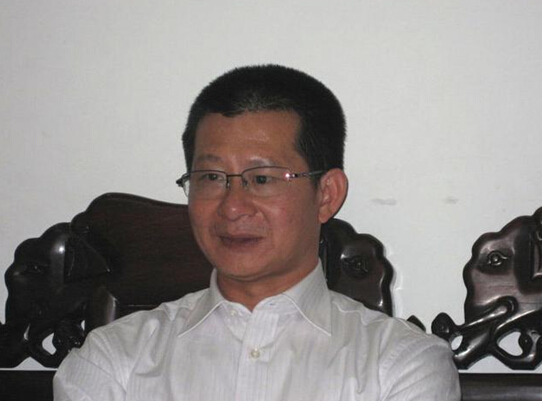

 |
GUANGZHOU, July 16 -- Wu Zeheng, founder and leader of the cult "Huazang Zongmen", is facing criminal prosecution along with several other suspected cult members, following year-long investigations by police in south China's Guangdong Province, it was announced late on Wednesday.
Local procuratorate of the coastal city of Zhuhai in Guangdong has instituted the prosecution for organizing and using cult to sabotage law enforcement, alleged rape, fraud, and production and sale of harmful food.
Wu, born in 1967, got his first police record for sexual assault at an early age and was later put in detention in 1991 for fraud and rascality. In 2000, he was sentenced to 11 years in prison for illegal fund-raising and unlawful business operations.
Upon release from prison in 2010, Wu began to propagate the pseudo religion "Huazang Zongmen" as a lofty sect of Buddhism and claimed to be the successor of several eminent monks. Glorified with fabricated educational background and life experience, Wu eventually became a master with supernatural power in the eyes of his followers.
Among many glamorous titles, Wu claimed he held a PhD of Cambridge University. But investigations at his hometown in Guangdong's Huilai County revealed that he dropped out from a local junior high school.
In the name of charity and life science and through inflammatory preaching, Wu lured a growing number of believers who wished to study Buddhism, seek disease treatment, or ward off ill fortune by joining the cult, according to the police involved in the investigation.
"When we arrested Wu in his locked bedroom last July, he was with a young woman in pajamas," said a police officer, who also seized philters, luxurious liquors, cigarettes, watches, jewelries and cash in his 200-square-meter apartment in Zhuhai.
Several female followers believed "practicing" with Wu in bed could help themselves "gain supernatural power," an excuse Wu used to seduce or coerce dozens of women, including two pairs of sisters and several minors, to have sex with him.
A follower surnamed Wang said she had been raped frequently. She got pregnant three times and was forced to have abortions. Some of the raped followers became barren.
Police said Wu had six children born in wedlock and at least another six born out of wedlock.
Wu set up websites and opened social media accounts to lure followers, and swindled them out of a great deal of money.
"New comers usually gave Wu premium cigarettes, liquors and tea as presents. But he hinted that he preferred cash," said a follower surnamed Yuan.
Wu said his paintings had "holy power" of warding off misfortunes. He sold three pieces for 100,000 to 500,000 yuan (about 81,400 U.S. dollars) each to his followers.
Wu bought 11 wooden stamps worth about 3,000 yuan from an online shop, and sold them for 538,000 yuan as the stamps were "rare and blessed".
Wu asked his followers to raise millions of yuan and opened an "imperial restaurant" in Shenzhen City, Guangdong Province, where he propagated that the dishes, priced at 2,000 to 6,000 yuan, were cooked with secret cuisines and precious ingredients.
However, the food proved to be very ordinary and contained some banned herbs.
Police investigation showed that Wu amassed more than 6.9 million yuan in illegal profits.
"Huazang Zongmen" is not an officially registered organization, nor is Wu a registered monk, according to the investigations.
In 1991, Shi Suxi, former abbot of the renowned Shaolin Temple, publicly denied any links between the monastery and Wu, who claimed to be a disciple of a prestigious Shaolin monk.
The incumbent abbot Shi Yongxin also said "Shaolin has nothing to do with Wu." Most of Wu's writings turned out to be either plagiarisms or unlawful.
To whitewash his past, Wu said his imprisonment was "religious persecution", in order to seek overseas support.
Due to his followers' lobbying, 17 U.S. lawmakers jointly sent a message to the Chinese ambassador to the U.S., demanding an end to the so-called "persecution".
Wu called the police bust of his cult "a crackdown on charity", and asked his followers to formulate "A Response Plan to Emergency".
According to the plan, if Wu disappeared for more than 24 hours, followers are required to stage protests and publish the situation abroad to pressure the Chinese government.
Wu also hired a Beijing-based lawyer to lecture his followers how to cause the police trouble and hinder law enforcement.
Shi Mingsheng, vice president of the Buddhist Association of China, said "Huazang Zongmen" conforms to the Buddhism "by no means" and it is purely "a disguised cult".
 Campus belle of Xiamen University gets popular online
Campus belle of Xiamen University gets popular online Who says moms cannot be trendy and hot?
Who says moms cannot be trendy and hot? 10 Chinese female stars with most beautiful faces
10 Chinese female stars with most beautiful faces Stunning photos of China's fighter planes
Stunning photos of China's fighter planes Enteromorpha hits Qingdao coast
Enteromorpha hits Qingdao coast Eight fruits that defend men's health
Eight fruits that defend men's health  First batch of female combat pilots with duel degrees fly Flying Leopard
First batch of female combat pilots with duel degrees fly Flying Leopard Top 10 secrets of longevity
Top 10 secrets of longevity Humanoid robot Yang Yang appears in Shanghai
Humanoid robot Yang Yang appears in Shanghai China’s GDP grows 7% in H1
China’s GDP grows 7% in H1 Iran nuclear deal defuses Mideast tension
Iran nuclear deal defuses Mideast tension New PLA campaign targets new recruits: Military academy
New PLA campaign targets new recruits: Military academy Classical Tang Dynasty garden unearthed at Chengdu construction site
Classical Tang Dynasty garden unearthed at Chengdu construction siteDay|Week